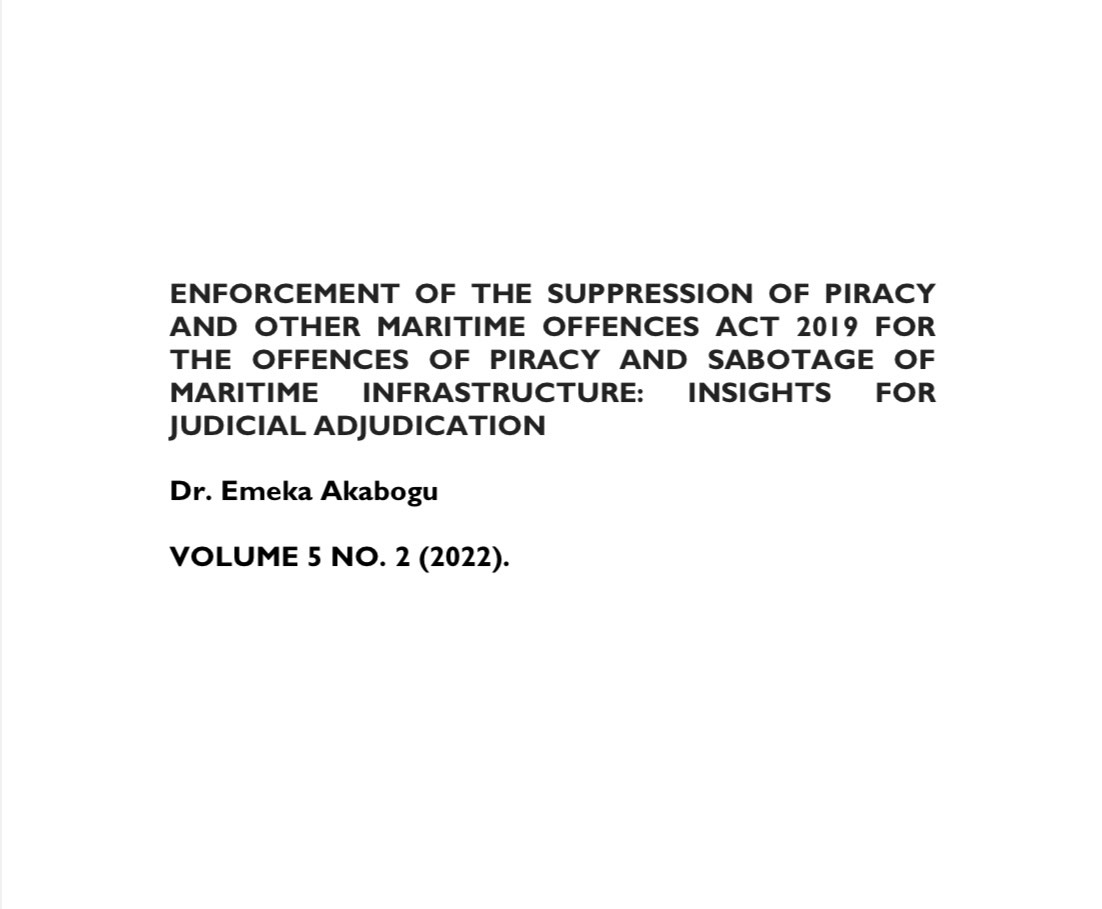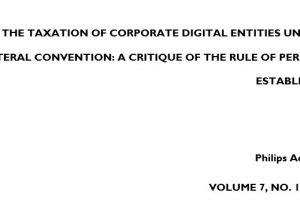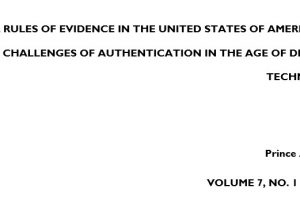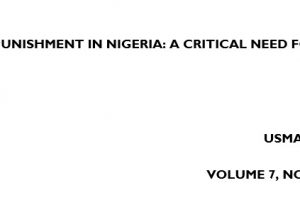ENFORCEMENT OF THE SUPPRESSION OF PIRACY AND OTHER MARITIME OFFENCES ACT 2019 FOR THE OFFENCES OF PIRACY AND SABOTAGE OF MARITIME INFRASTRUCTURE: INSIGHTS FOR JUDICIAL ADJUDICATION
INTRODUCTION
Nigeria’s coast is part of the Gulf of Guinea (“GoG”), a highly diverse and prolific aquatic ecosystem, and one of the richest in the world. The GoG is an important gateway not just for the littoral states along its coast, but for the landlocked states in the region, making it one of the very important global maritime routes for commercial shipping. As a result, it has become the target of criminals who take advantage of suboptimal regional maritime governance. For a long time, an important regional governance deficit was the absence of focused legislation for tackling piracy in any of the countries. The enactment of the Suppression of Piracy and Other Maritime Offences (SPOMO) Act 2019 is therefore a milestone for the maritime security regime of Nigeria and the wider west and central African region.
As the first country in the region to enact a specific piracy-focused law, the country may enjoy any associated political benefits but will certainly face challenges of uncharted legal, judicial and forensic waters. This article interrogates the enforcement quotient of the SPOMO Act for piracy and sabotage of maritime infrastructure in the context of the adequacy of the Act’s provisions, interaction with other domestic and international legal instruments and impact of extant legal principles. It is expected that with the benefit of this review, judges will have an expanded view of the legal issues in the course of adjudicating cases founded on alleged breach of the SPOMO Act.
To read the full article, click here
UNILAG Law Review, (2022) Volume 5 Edition 2
About the Author
Dr. Emeka Akabogu is a maritime lawyer and Senior Partner at the law firm Akabogu & Associates. His expertise traverses both maritime and petroleum sectors. He is the Chairman of OTL Africa Downstream, and the Founder/CEO of the Nigeria International Maritime Summit. His LL.M is in Maritime Laws from the University College London, and his PhD is in International Maritime Law from the IMO International Maritime Law Institute, Malta.




